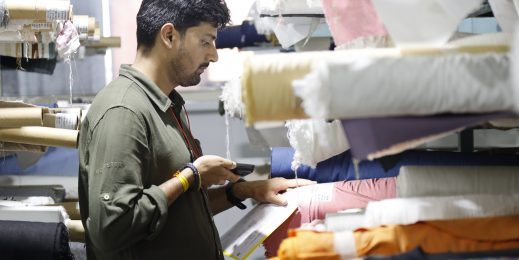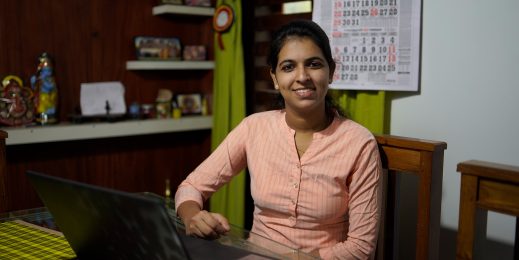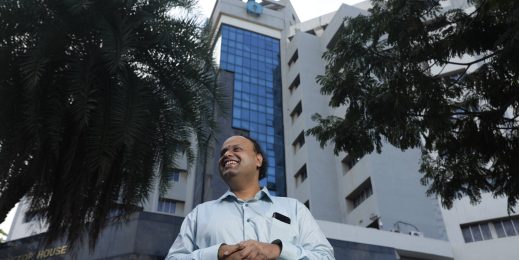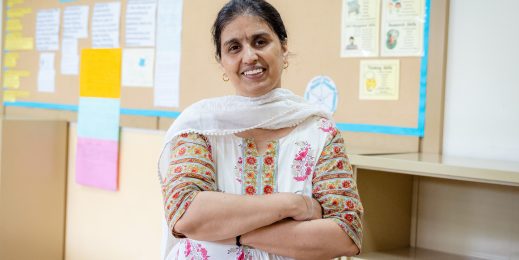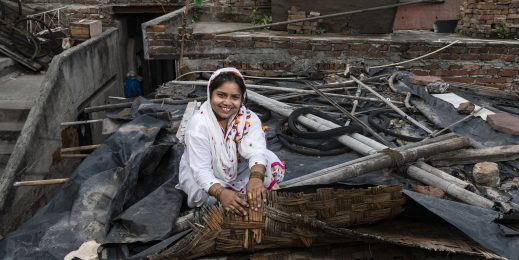
How Devika Narain is making big fat Indian weddings more mindful
From destination weddings to cosy settings, this celebrity wedding planner continues to weave magical experiences for her clients while working remotely
Her earliest memory of a wedding was when she was 10-years-old. As most Indian weddings go, the festivities began weeks before the actual date of the nupitals and continued for days after. It was around this time that Devika Narain figured she’d very much enjoy being in the midst of such festivities for the rest of her life.
“Just the happiness in the air was tangible,” she recollects. “The idea that you could let go of everything else and just be completely invested in something so removed from the everyday was fascinating.”
Years later and after a few false starts, she acted upon her instinct and took up wedding planning as a career.
Today, Narain is one of India’s best-known wedding planners, who counts among her clients the celebrity couple – Bollywood star Anushka Sharma and cricketer Virat Kohli – whose Tuscany wedding she’d organized.
“Back then wedding planning was never considered a mainstream career. So after I completed my graduation in English Literature, I took up journalism,” Narain says.
A rejection letter from a master’s program made her re-evaluate her career decisions and she joined a wedding planning company in Mumbai in 2009.
“Back then weddings were usually grand, larger-than-life, almost theatrical affairs,” Narain recollects, “People were focussing on how weddings looked and not so much on how they felt. I began my company in 2015 with an aim to change that and to create weddings that are mindful.”
She’s also leading the way in her use of remote technology to create smaller and more intimate weddings that comply with pandemic regulations.
Before the COVID-19 pandemic, the Indian wedding industry was worth an estimated at USD 50 billion. It wasn’t uncommon to have a few thousand guests over a period of a few days.
However that trend was already beginning to change ever so slowly in the early part of the last decade. Elder millennials and late Gen Xers – the large group of people who were getting married around the time – were responsible for ushering this change. This helped shape Narain’s mission too.
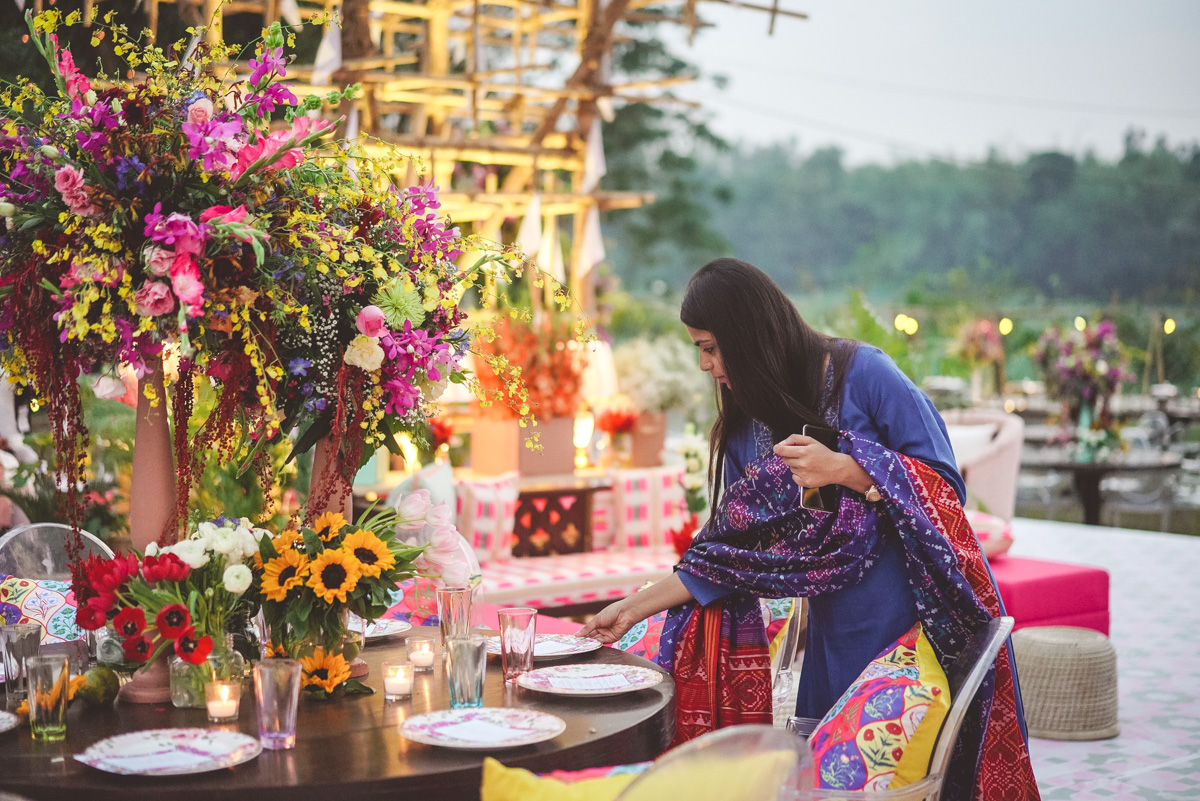
“They weren’t as close to their families as their parents were. And since most of them were able to pay for their respective weddings, they obviously wanted more control over their weddings. Having 5,000-guest weddings were not high on their agenda,” Narain says.
Since it started, Devika Narain & Company has specialized in designing weddings that focus on personal stories such as the likes and dislikes of the bride, the groom, and their families, rather than impersonal themes and trends.
“We work with local artisans and craftspeople to narrate these personal stories through space and celebrate the heritage of the Indian subcontinent with a modern sensibility,” Narain says. “We also try to source design materials locally: opting for locally grown flowers, for instance, instead of importing tulips from Holland.”
Today, this scaled down approach to weddings has become mainstream. When the COVID-19 pandemic hit, the trend of intimate weddings exploded. Suddenly, it wasn’t just cool to have a 25-guest wedding, it was the law.
The pandemic also made Narain rethink her business strategy to a work-from-home mode.
“One of the first things we were able to do because of Microsoft Teams was get face time with each other: not just internally but also with clients who we were not able to physically go and meet,” Narain says.
It has empowered her to carry out tasks that were earlier thought of as being impossible to achieve online.
“Our initial event recces happen online as do our client meetings,” she says. “That’s where Teams really comes handy. We use Teams to make design presentations to our clients who are then able to annotate live as we take notes. The changes are documented so everyone’s on the same page. Internally too, design meetings take place entirely online and we collaborate on one single file, mark out the changes, and finalize our plan.”
Before the pandemic, Narain and her colleagues would work from their offices. Meetings then would typically be centered around a large plan of a venue laid out on a conference table.
Today, they collaborate remotely using Microsoft Whiteboard on Teams.
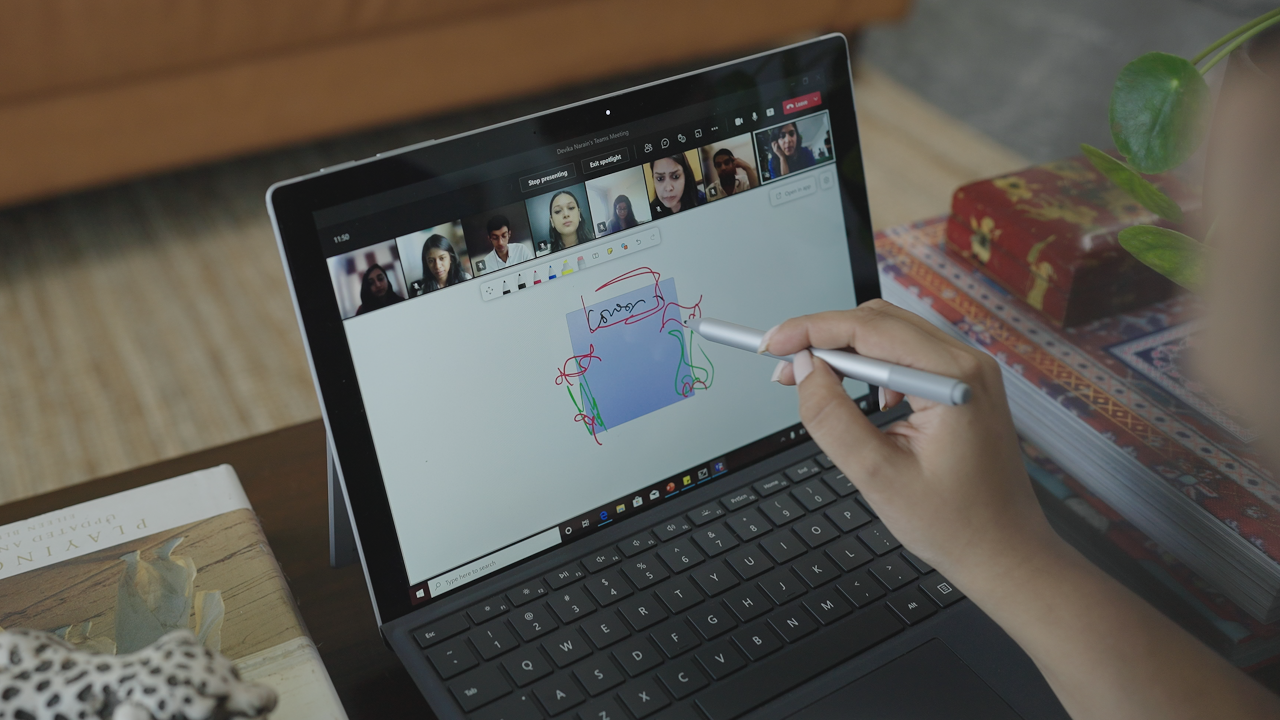
“I love that Teams helps our colleagues from six different cities in India and two other countries collaborate on this virtual drawing board. That’s one of the coolest ways in which we actually end up using Teams.”
Teams has also helped Narain’s colleagues to bond better. “Just as we would walk in from one office to the other at work, we now ping each other on Teams, turn on our cameras and catch up on work and gossip. Even birthdays are celebrated together on Teams. We create backgrounds, send cake to everyone ahead of time so we can have them on calls.”
For Narain, though, the switch to Teams was a natural progression from her Microsoft Surface Pro, which she’s been using for a greater part of the last decade.
“Due to its nature, a laptop can be tad cumbersome to use and a mobile phone inconvenient for long-duration usage. Surface Pro is convenient, light, and intuitive. And its size is perfect – it fits in my handbag.”
Thanks to Surface Pro, Narain says her company has been able to go paper-free. “I can’t remember the last time I wrote something down on paper because all I do now is use Surface Pro. I can collaborate, work on a layout plan, leave notes and, importantly, sign documents. You will be amazed at how many documents one has to sign when one is running a company. The Surface Pen is a game changer.”

It is also her post-work companion. “When I’m done with work, I could be in bed using it to watch a movie or even read! I’ve subscribed to a lot of magazines online since I bought a Surface Pro and I get a lot of reading done,” she says.
It isn’t just her, Narain says, but her design team and business teams too that lean on Surface devices for their daily tasks because of its convenience and intuitive nature.
Narain isn’t just using technology to navigate her company through choppy seas during the pandemic. She also recognizes that it will play a huge role in the new normal of her industry.
As with every other sector, Narain believes that the industry will evolve and only those companies that embrace technology will be the ones to survive.
“The days of 5,000-guest weddings are behind us,” she predicts. “Intimate weddings are here to stay. As are the online meetings and apps like Teams that encourage collaboration and make the backend planning seamless.”
Abhishek Mande Bhot is an independent writer and editor covering news, lifestyle, and luxury for publications in India and the US.







